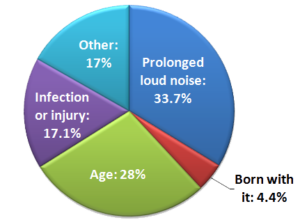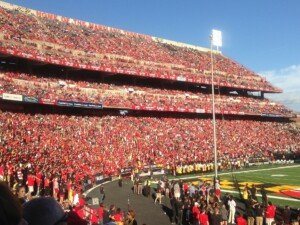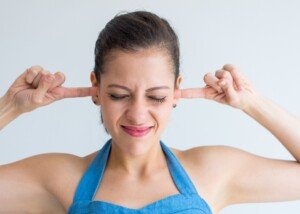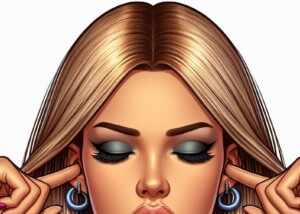
Hearing loss causes; which is No. 1?
The screaming at ball games and other sporting events is literally deafening, yet very few people think to wear earplugs at these events. You’re ruining your hearing.
The loud screaming, hollering and cheering at ball games and other sporting events not only can cause hearing loss, but just one game can damage hearing.
There are sporting events that have been studied for the very purpose of hearing loss from the loudness.
“To provide an example of one such event, a study of noise levels produced at an NCAA arena has shown that one-third of the participants tested over the course of three home games for the Murray State Racers were exposed to noise levels above the OSHA noise exposure limit of 85 dB for an average of eight hours,” begins Rivka Strom, AuD, CCC-A, chief audiologist at Central Hearing LLC in NY.
“OSHA is the Occupational Safety and Health Administration, and they set noise exposure limits for levels based on a timing factor,” continues Strom.
“The effect of noise induced hearing loss (NIHL) are potentially serious — and while spectators may realize these events are loud, they may not realize they are dangerous to the ears. Ear protection is a MUST at these events!”
One Sporting Event Is All It Takes to Damage Hearing
This is the finding from a study by Bill Hodgetts (U of A’s Faculty of Rehabilitation Medicine) and Dr. Richard Liu (Faculty of Medicine and Dentistry).
They measured noise levels at games 3, 4 and 6 of the Stanley Cup finals against the Carolina Hurricanes in 2005.
Don’t let that past date fool you; their findings still stand strong.
Results of Sound Level Meter Testing
It took under six minutes to achieve the maximum allowable daily dose of noise volume.
To put another way, every fan without earplugs got socked with about 8,100 percent of their daily noise dose.

The paper adds that fans aren’t the only ones at risk for hearing loss at sporting events; athletes and employees are as well.
One must wonder how damaged the hearing is of that brawny hockey player who proudly sports his permanently disfigured nose.
The study report points out that usually, fans’ ears will recover after one or two games.
But do you have season tickets or otherwise attend frequently? Whatever hearing loss you eventually develop will be connected to these games.
Who’d ever get caught dead wearing earplugs to a sporting event?
One woman posted in an etiquette forum that she nonchalantly popped in earplugs when the woman behind her began screaming blood curdles every time her team scored.
We all want to have fun and root for our teams. But must you sound like Fay Wray when she sees King Kong for the first time?
The woman with the earplugs never even turned to look at the screamer, yet the screamer became offended at the sight of someone in front of her putting in earplugs and began hurling obscenities.
Though the reaction by this nutcase is the exception, you should not hesitate to pop in earplugs. In fact, put them in as you take your seat rather than after the fact.
Just like you’d wear sunscreen to protect your skin while at the ball game, a cap to shield your eyes from glare, mittens to keep your hands warm, a scarf over your nose, and so on, why should earplugs be excluded from your arsenal of body protection?
Never mind what strangers, or even your own camp, might think.
You may need to loosen one or both plugs to fully understand conversation with your group amid a generally noisy atmosphere, but when conversation is finished you can just push the ear plugs firmly back in to protect your hearing.
The study appears in the 2006 Canadian Medical Association Journal.










































